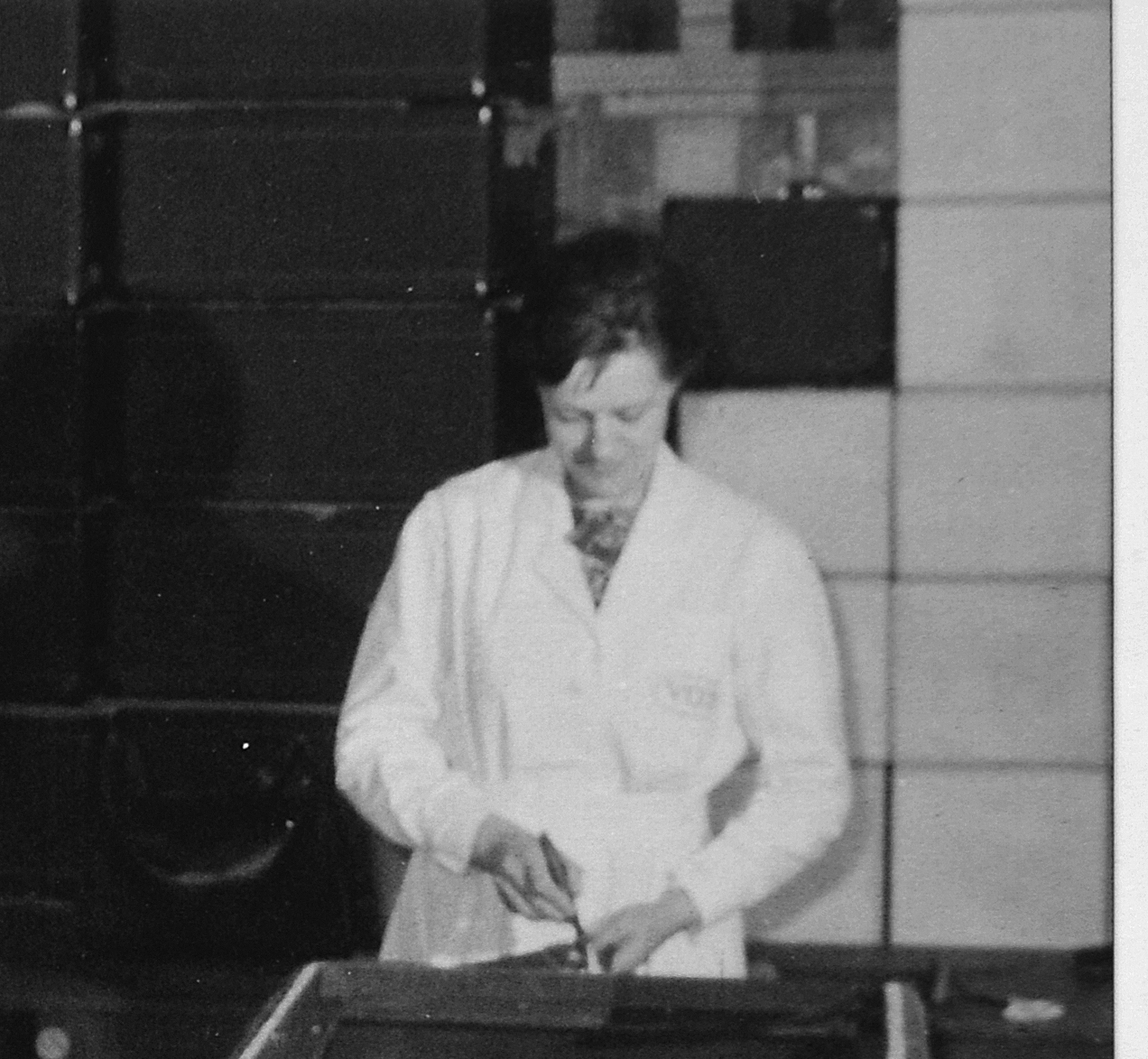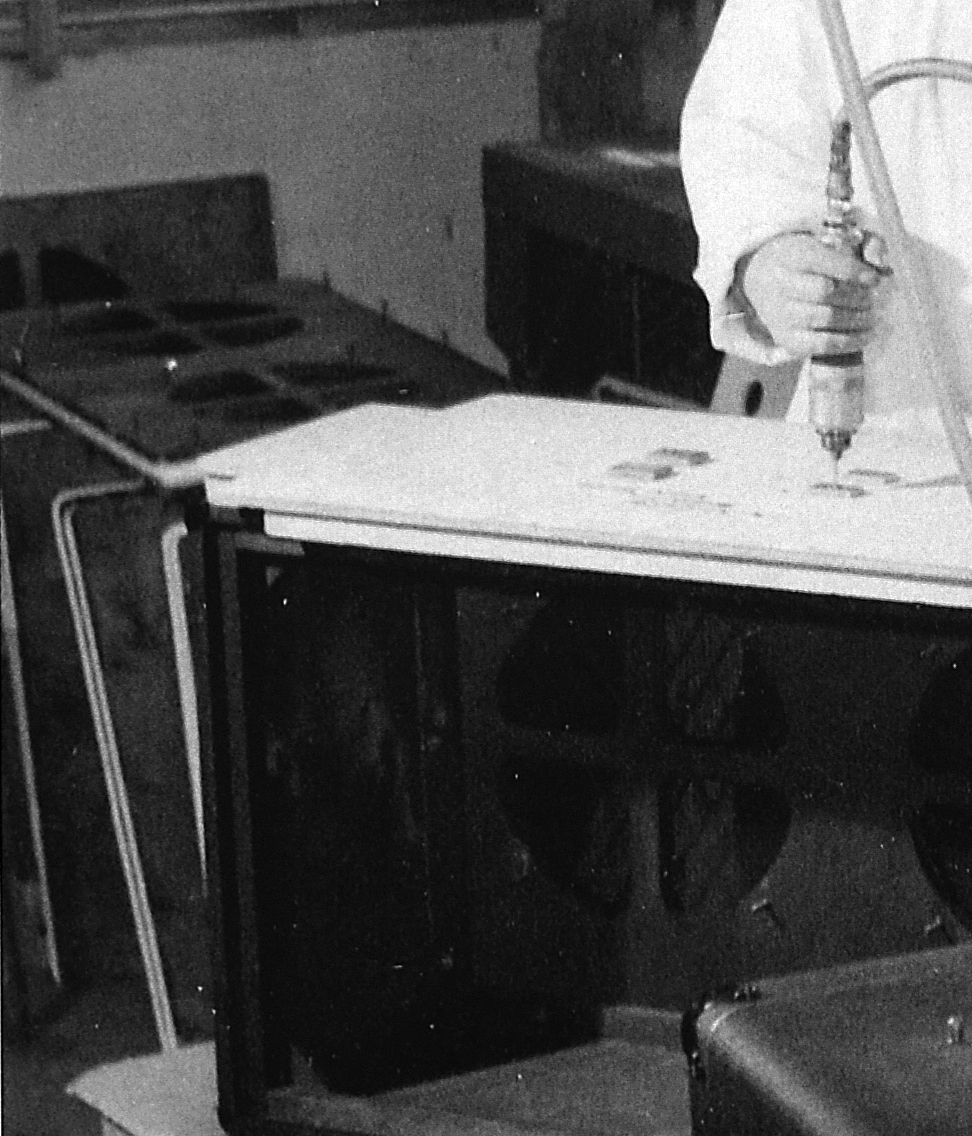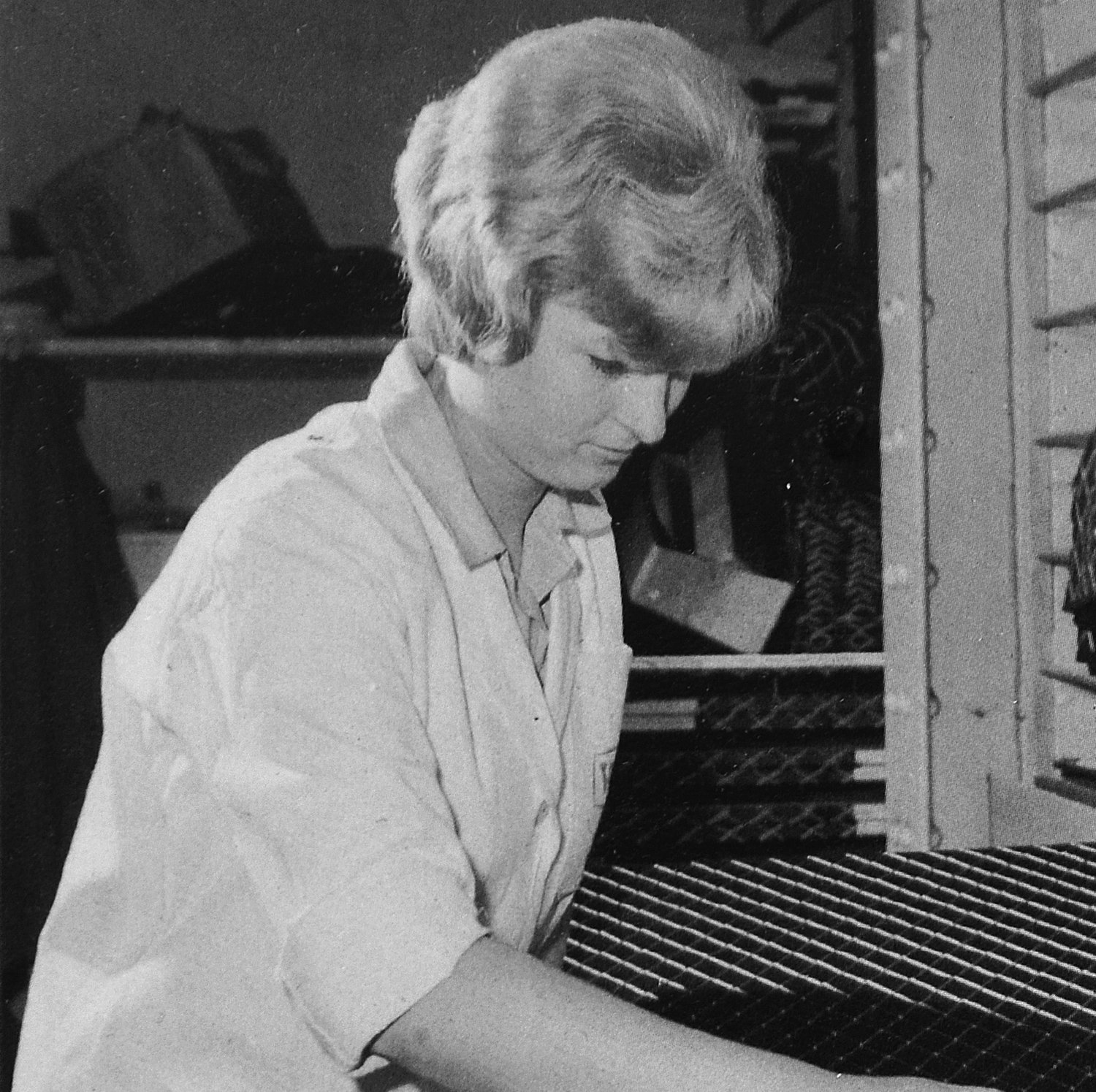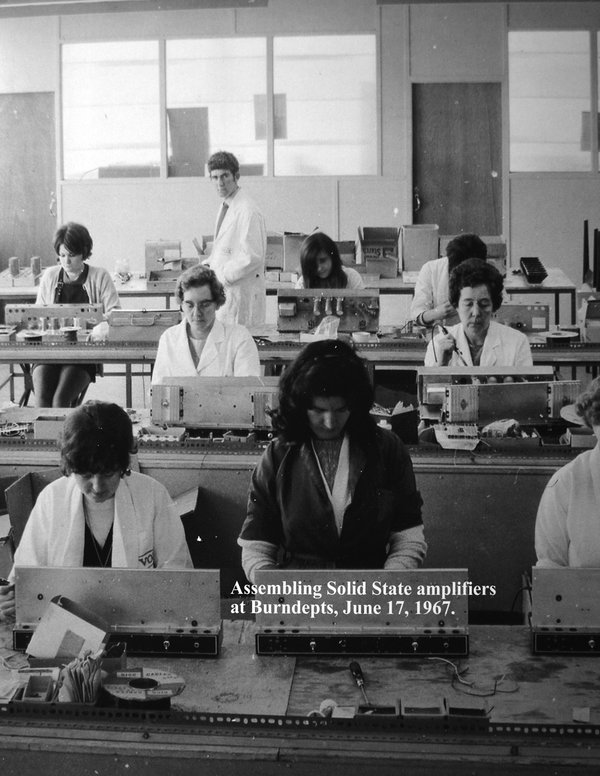The Vox and Burndept Works, West Street, Erith, Kent
Home of the Vox solid state line
The Vox Factory and Elizabethan Electronics building, picture said to be from before the 1965 fire, but the Vox logo tends to suggest 1967 or later. Image (Ken Chamberlain) from this wonderful blog.
Below, pictures of the Burndept Works, West Street, Erith, which the company shared with Vox from late 1964. Both were part of the Royston group of companies, though Royston it should be said charged JMI rent even so. Burndept continued to assist Vox in the design, development and manufacture of amplifiers. When JMI folded in April 1968, Reg Clark and Cyril Windiate brought the necessary funding together to save the Vox name; and the new company - "Vox Sound Equipment Limited" - resumed productoin at the West Street Works later in the year, having purchased the buildibng outright from Royston/Burndept. Vox remained in Erith until Spring 1971, when "Vox Sound Limited" - which had succeeded VSEL in early 1970 - moved operations to St Leonards on Sea (near Hastings).
From 1967 to 1971, the chief things produced at the West Street Works were amplifiers and organs. Speaker cabinets were supplied by specialist contractors. Some required "dressing" with vinyl, grille cloth, and so on; others arrived fully finished, requiring only speakers. Guitars and effects pedals were invariably bought in from other suppliers (and rebranded with the Vox name).
The images below will enlarge if clicked on.
The Vox and Burndept Works, off West Street, on Nordenfeldt Road. Behind it, the "Elizabethan Electronics" building.
Ordnance Survey map 1971, 1:25000 series:
"Record Retailer and Music Industry News", 30th April, 1964
A report - 3rd November 1964 - of the readiness of the West Street Works in Erith: "completion" probably refers simply to the refitting of the building. Production of amplifiers began shortly thereafter: AC50s first, then in early Spring 1965, AC100s.
The fire of 1965 - the building viewed from the "railway" side. Image from J. Elyea, Vox Amplifiers, p. 92.
On 1 December 1965 fire broke out, destroying the whole of the top floor of the building which housed the Research and Development Department, Guitars, Organs, packing materials, and items waiting to go out. Fortunately the rest of the factory was saved. Following the fire, the manufacture of organs and guitars moved back for a time to Dartford Road and into another building owned by Burndept a short distance away.
As for the other Departments: Dispatch was on the ground floor, along with the finishing areas (where amplifiers were given wooden cases and so on). There were some assembly rooms on the first floor too; but most of that floor was occupied by Burndept. In mid 1966, Royston set up a drawing office there. This produced the circuit diagrams (among other things) for the solid state amps: all bear the legend "The Royston Group of Companies".
INTERIOR
Pictures of cabinet finishing in the Vox Works, Erith, taken by Denis Molyneux. These pictures were published with various dates and locations ascribed in their captions. All are from 1967-1969.
In 1969, cabinets were generally made by Gla-Rev (Hainault, Essex) and Heathpoint Timber of Thundersley, Essex. Prior to mid 1968, Heslop and Company of Rayleigh, Essex, a member of the Royston Group along with JMI, had been the main supplier.
June 1969. Adding the vinyl covering. In the foreground a Supreme cab - NO - it is a Super Foundation Bass. The glue is common or garden PVA.
Wooden cabinets for amplifiers (as received from Gla-Rev) waiting to be covered and made ready for use. A finished one sits on top of the smaller pile.
June 1969. Conqueror speaker cabinets. Adding the fittings. Note the jig for the drilling of holes for the handle fixings.
Stacks of finished baffles with grille cloth and white piping.
Said to have been taken at the P.A.Glock premises in Crayford, but this is actually the Vox Works, June 1969, as above. Note the "V" of the "VOX" logo on the work-coat. Ironing the cloth of a Super Foundation Bass baffle - around 17 diamonds wide.
An assembly room on the second floor of the Works. Unfortunately the caption on this picture is wrong. The photo was actually taken in June 1969 - one can tell from details of the Defiants on the assembly tables.
A former member of "Vox Sound Limited" staff recalled:
". . . it was a brick industrial building about three stories high, with parking in front of it. Vox occupied several floors, and you had to go out of their areas and into a staircase well to get between floors. The main production area had about twenty people in it, under Bob Poulter. The so-called research department was a small separate area, on the same level as the production. Reg Clark's office was on a lower floor. . . .It was amongst other industrial premises and there was just one cafe - transport style - a few yards along the road."
In the Spring of 1971 production was moved to the Birch-Stolec factory in St Leonards on Sea (near Hastings) and the West Street Works sold off - probably to "Dallas Limited" for the manufacture of drums, though this has yet to be verified from a second source. But acquisition by Dallas would make sense. Reg Clark, formerly of JMI and VSEL, had led the sales team there since 1969, and tried to save Vox in 1970, recommending that Dallas should take it over. As it turned out, the company was taken on by Michael Birch, who had managed to marshal the necessary capital. But Reg was successful three years later, bringing Vox under Dallas's wing in the summer of 1973. "Vox Sound Limited" had simply ground to a halt earlier in the year.













